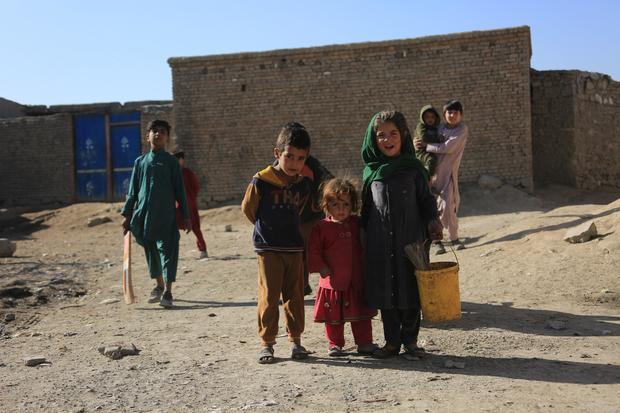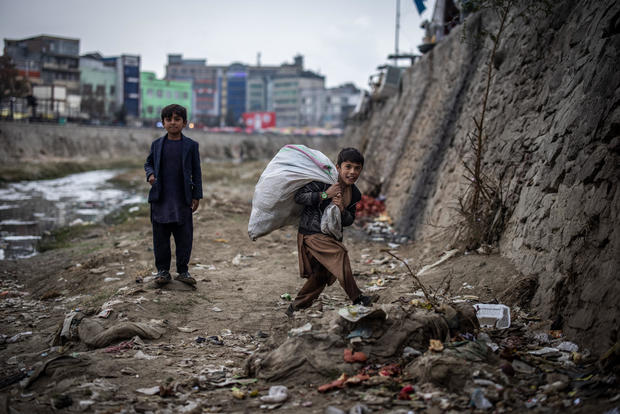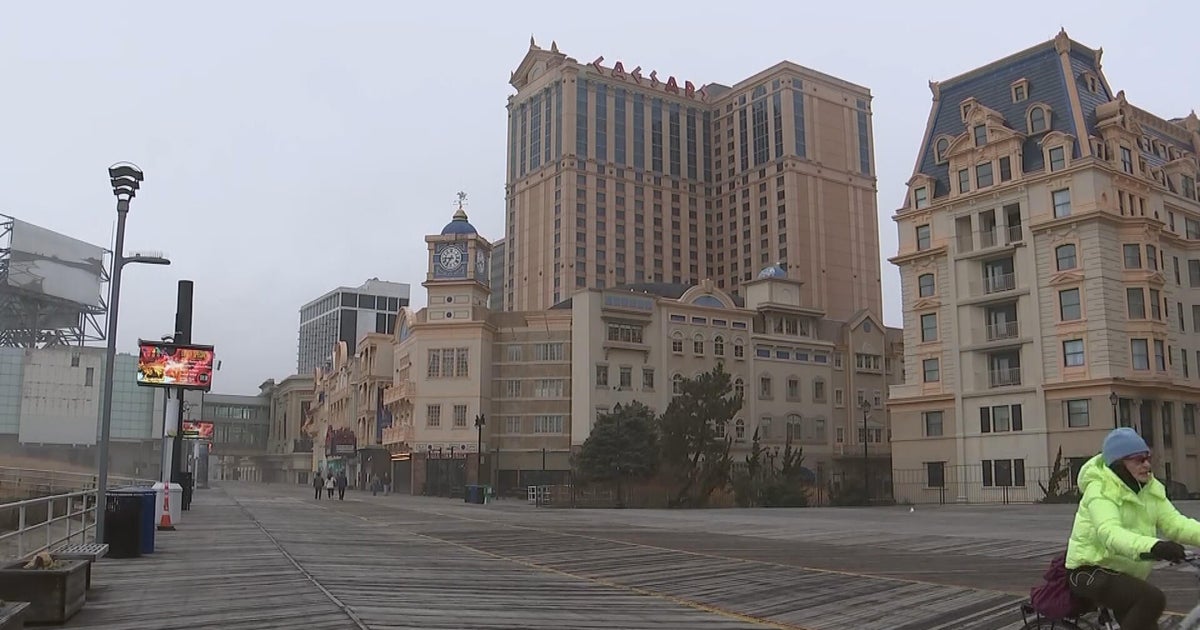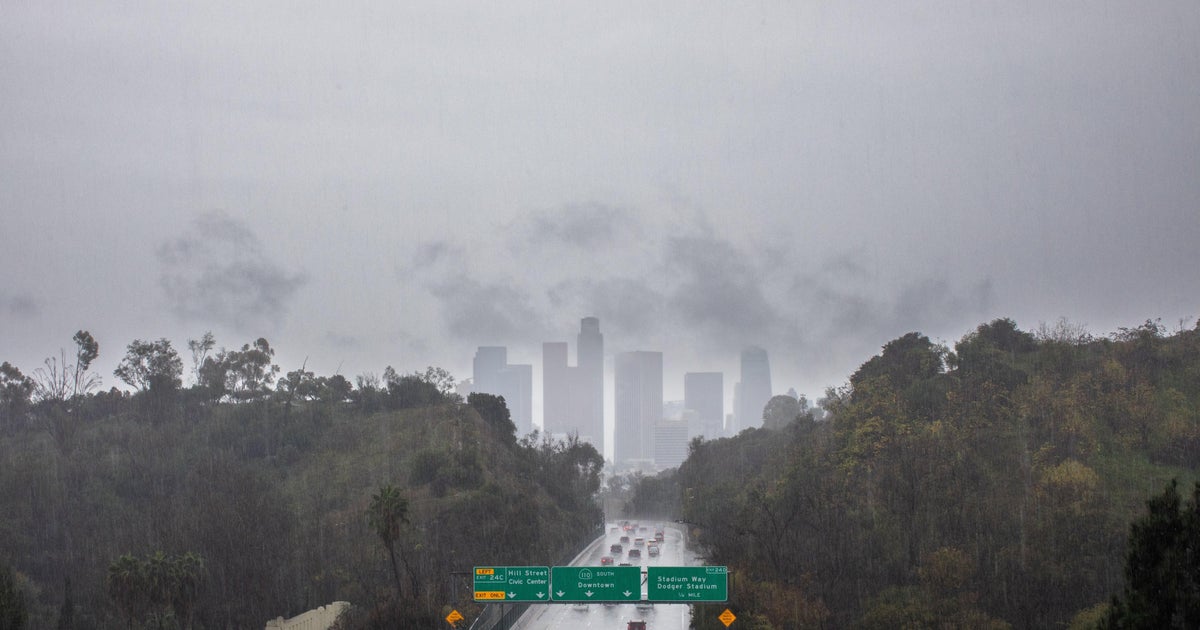Winter under the Taliban: Afghan families struggle without work, warmth, or hope
There is an old saying in Afghanistan that "winter is the death of the poor." There's no escaping the truth in the adage this year, as Afghans spend a second consecutive winter under the rule of the Taliban. A majority of Afghanistan's households are struggling to find warmth and health care, and many families are putting children to bed with empty stomachs.
Hunger and poverty have plagued Afghanistan for decades, thanks to seemingly endless war, corruption, poor government oversight, social injustice and lack of infrastructure, among other factors. Rural areas have long suffered the worst, but since the Taliban stormed back to power in the summer of 2021 and the U.S. and its allied military forces left, acute hunger has knocked on many more doors across the country. The United Nations ranks it among the world's worst humanitarian crises.
"Afghan families face a terrible dilemma: Food or heat. Most can actually afford neither," the International Committee of the Red Cross said last week. "As a result, we are witnessing an alarming increase in the number of cases of pneumonia and malnutrition."
Afghanistan has been an aid-dependent country for many decades. Since the Taliban takeover, however, international assistance has significantly decreased. Hundreds of thousands of people — especially women, who've lost many rights — have lost their jobs due to the regime change.
At the same time the country's been dealt a tremendous financial blow, with the coronavirus pandemic, the withdrawal of Western military and civil society, and the imposition of new international sanctions all converging to send the national economy into freefall.
And while Afghans' buying power has plummeted, the cost of basics has soared due to pandemic supply chain issues, the war in Ukraine and climate change. According to the United Nations Development Program, "the price of a food basket, with the minimum calories to escape food poverty, has surged 35%."
The United States has sent more than $1.1 billion in humanitarian funding to Afghanistan over the past 15 months. According to Afghanistan's central bank, about $40 million pours into Kabul every week from various donors.
But help is not reaching the people who need it most.
Naila Mirza, a junior doctor in Kabul, told CBS News that many pregnant mothers have been coming to the hospital where she works seeking abortion advice.
"I witnessed mothers with tearful eyes who wanted to keep the baby, but economic hardship forced the couple to abort the child," Mirza said. "Due to lack of proper nutrition, we are seeing six-month-old babies who look like two-day-olds, because mothers who should be eating during pregnancy are starving."
Shallah, 30, fled her home Panjshir to a neighboring province after the Taliban took over. Her husband was a police officer for the U.S.-backed government, so they couldn't stay put, and she has asked us not to use her real name. Her husband fled to Iran, hoping to find work, but she said he was beaten, tortured and deported by the Iranian police. He's now back in Afghanistan, but lives in hiding.
Now Shallah lives in a rented one-bedroom house with her seven children. As in many Afghan families who've lost their male breadwinners, an eldest son has become the primary source of income. At just 11, her son spends most nights on the streets of Kabul.
"I sent my 11-year-old son to Kabul for a labor job and selling plastic bags on the streets," she told CBS News over the phone. "If he makes money, we eat. If he doesn't, we don't."
It's a similar nightmare for Gulshan. She also fled her home in Panjshir with her five children. Her husband also emigrated to Iran to find work, and to escape the Taliban, about four months ago and hasn't been heard from since. She told CBS News she occasionally borrows food from a shop near her rented home, or asks neighbors for help. But her neighbors are all stuck in similar circumstances.
"The shop owner comes to our house every week and asks if my husband has sent money from Iran," she said, sobbing. "I don't know if he is even alive."
Thousands of Afghans fled to neighboring nations after the U.S. withdrawal, but the circumstances encountered by many fleeing to Iran and Turkey have been grim. Social media videos, which CBS News cannot verify independently, have shown Afghan migrants chained, beaten, and even crushed under rocks along the borders, purportedly by security forces of the other countries.
Najib, 48, works at a government hospital as a cleaner. He earns about $68 per month but spends $28 of that to rent a one-bedroom house. He said he's sometimes able to bring home leftover food from the hospital to give to his children.
For heat, Najib said he's resorted to a method that has become popular for families across fuel-deprived Afghanistan.
"To warm the hands and feet of my children, I fill plastic jerry cans with hot water and put a blanket on top," he said. "I have one jerry can for myself and my wife, and one for my children."






